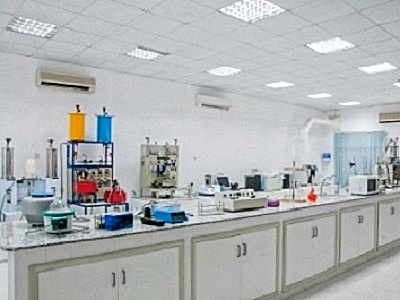The Nanomaterials Research Laboratory (NRL) was established in October 2015 in the Department of Applied Physics, Delhi Technological University, Delhi, India, by a small group of research scholars led by Dr. Nitin K. Puri to pursue research on nanoscale. Today, NRL has established facilities for synthesis of semiconductor oxides and 2D nanomaterials by chemical techniques such as hydrothermal synthesis, sol-gel method, co-precipitation method and solid state method and physical techniques such as plasma enhanced chemical vapour deposition (PECVD) and double-zone chemical vapour deposition (CVD). Topics of interest include, but not limited to gas sensors, bio-sensors, supercapacitors, solar cells, photodetectors and hydrogen evolution reaction (HER).
The Nanomaterials Research Laboratory has contributed highly qualified technologists and academicians to R/D institutions and various government institutions. This has been possible through research and development projects in the laboratory. The hard work of the head of the laboratory is reflected in large number of projects. Through these projects, not only the advancement of technology in laboratory has been achieved, but also it has helped the scholars to apply the seeds of research and technology wherever possible. The research group comprises of many active research scholars and students working in various fields.
Research scholar associated with the laboratory continuously and consistently work with graduate and postgraduate students (including B.Tech, M.Tech, and M.Sc) to guide them in the field of material science and advanced experimental techniques to alter the properties of nanomaterials at nanoscale. The research group of the NRL operates and maintains facilities such as Chemiresistive gas sensing set-up, Potentiostat-Galvanostat Autlab, Fourier Transform Infrared Spectroscopy (FTIR), Electrometer, Chemical Vapor Deposition (CVD), Plasma Electrophoretic Deposition machine, Spin-Coating unit, various muffle furnaces and hot air ovens, Vacuum oven and Tubular furnace, all under one roof. If you have any exciting and fascinating idea, come and visit us. We welcome academic and laboratory collaborations. There is another laboratory associated with NRL which is Advanced Sensor Laboratory (ASL) where Plasma Enhanced Chemical Vapor Deposition (PECVD) is established.
